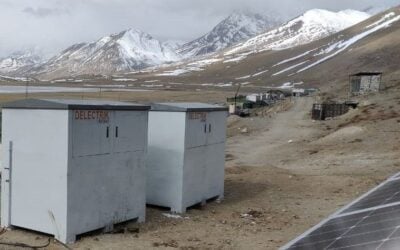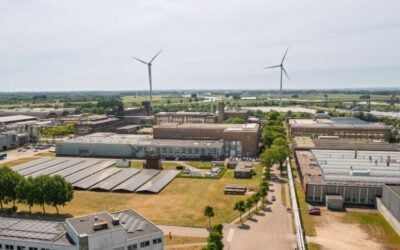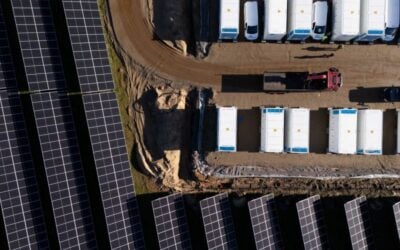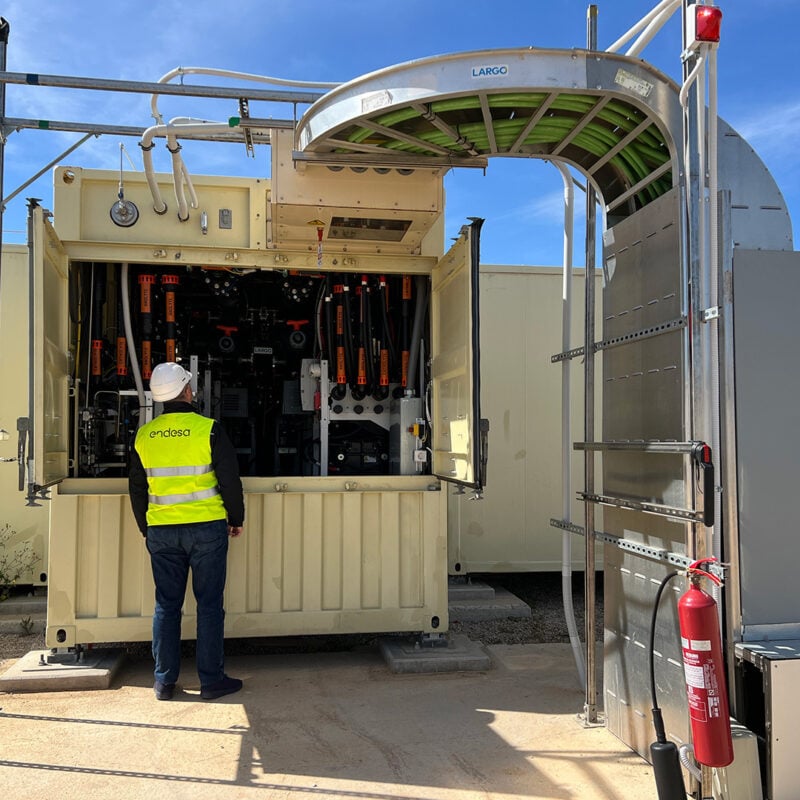
What is thought to be the largest vanadium redox flow battery (VRFB) at a solar farm in Europe has been switched on by Enel Green Power in Mallorca, Spain.
The 1.1MW/5.5MWh flow battery has been installed at Enel Green Power Espana’s 3.34MWp Son Orlandis solar PV plant in the Mallorcan municipality of Palma. The VRFB was provided by Largo Clean Energy, the recently established downstream arm of primary vanadium producer Largo Resources.
Enel Green Power posted some pictures of the project to X (formerly Twitter) on 18 March with the comment that the plant “paves the way for a sustainable, fossil-free future.”
Meanwhile the renewable energy developer’s parent company, Endesa, posted a short video of the project to business networking site LinkedIn yesterday (20 March), alongside comments that the “innovative” project is pioneering for the Spanish market.
Try Premium for just $1
- Full premium access for the first month at only $1
- Converts to an annual rate after 30 days unless cancelled
- Cancel anytime during the trial period
Premium Benefits
- Expert industry analysis and interviews
- Digital access to PV Tech Power journal
- Exclusive event discounts
Or get the full Premium subscription right away
Or continue reading this article for free
Endesa also highlighted some of the technical benefits of VRFB technology, describing the new system as a “high-performance solution with no negative impact on the environment” that was developed in partnership with Largo Clean Energy.
Energy-Storage.news reported on the project in 2021 as it got underway, with the solar PV deployed in the first phase and the flow battery system in the second. It followed a partnership formed between Largo and Enel Green Power in August of that year.
Largo Resources said this week that it has signed a letter of intent to form a joint venture (JV) with US-headquartered energy storage solutions provider Stryten Energy, combining Largo’s access to raw materials and electrolyte production capabilities with Stryten’s manufacturing and design.
Last year Stryten inaugurated a VRFB demonstration project in the southern US state of Georgia.
That 20kW/120kWh system is being used by utility Snapping Shoals EMC to test the ability of flow batteries to perform “a wide range of applications such as energy cost control, peak shaving, avoiding curtailment and renewable integration,” according to a Stryten spokesperson who spoke to Energy-Storage.news in August 2023 as the ribbon was cut.
The claim that the Son Orlandis project is the largest flow battery paired with solar PV in Europe certainly rings true, at least for publicly announced projects. A 5MWh VRFB sits at the Energy Superhub project in Oxford, UK, supplied by Invinity Energy Systems for project owner EDF. The Superhub is also notable in that it features both VRFB and lithium-ion (Li-ion) battery technologies at the same site, designed as a ‘hybrid’ for each to perform different, complementary applications.
Elsewhere, Anglo-American flow battery company Invinity has also supplied tech to a much bigger solar-plus-flow battery project in Alberta, Canada, with a share of government-distributed funding to support it. Chappice Lake Solar & Storage Project features a 2.8MW/8.4MWh VRFB system paired with 21MWp of solar PV.
Meanwhile, the biggest VRFB project of any type in the world is thought to be in Dalian, China. Co-developed by the Chinese Academy of Sciences with a storage capacity of 400MWh to 100MW output, the project is planned for expansion to double both megawatts and megawatt-hours and is one of a number of large-scale projects supported by China’s government.
Mercedes-Benz orders 11MWh organic flow battery in Germany
Vanadium is the most common main ingredient for flow battery electrolyte, but it is far from the only one, with a range of other materials used by providers.
One of those providers is European company CMBlu Energy, which has just won a deal for an 11MWh system from carmaker Mercedes-Benz.
CMBlu sent a release yesterday to media including Energy-Storage.news, describing the CMBlu SolidFlow energy storage tech as “an important building block” for the luxury car brand to “gradually increase” its use of renewable energy for its production lines.
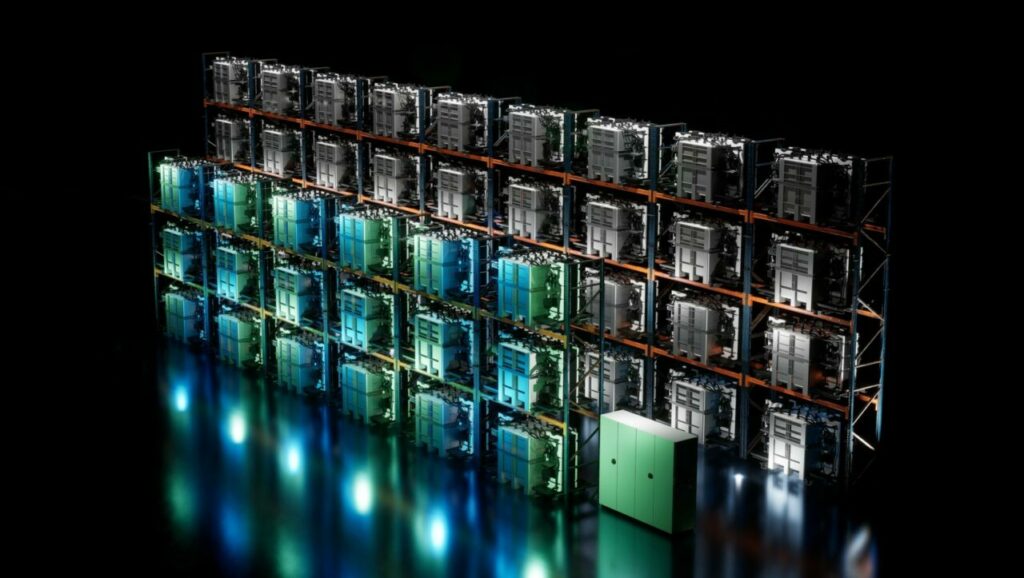
It will be deployed at Mercedes-Benz’s Rastatt plant near Karlsruhe in western Germany, close to the Rhine River and the country’s border with France.
CMBlu said series production of its flow batteries will begin in Q3 2024. The company has not revealed the exact electrolyte chemistry of its devices but has previously said it uses an aqueous electrolyte solution made using recycled materials.
CMBlu raised €100 million (at that time about US$107 million) investment last year from technology and construction firm Strabag, as reported by Energy-Storage.news in October.
“We are making our contribution to renewable energies: we want to play an active role in shaping the energy transition,” Mercedes-Benz member of the board of management at the company’s production, quality and supply chain management division Jörg Burzer said.
“The integration of energy storage systems into our production system, which is increasingly powered by renewable energies, is an important factor,” Burzer said.
The flow battery will be installed in the second half of 2025, and CMBlu said its customer is investing a “single-digit million Euro amount” into the project, which will help store “green electricity” from sources including onsite solar PV, for use over “many hours”.
The 11MWh figure was given as approximate, while a megawatt number was not provided.
CMBlu founder Dr Peter Geigle claimed the CMBlu flow battery tech “relies on natural and practically infinitely available resources,” thus preventing new dependencies on raw materials that he said metal-based batteries experience. The flow battery supply chain is also decoupled from the electric vehicle (EV) supply chain, which is another claimed advantage.


